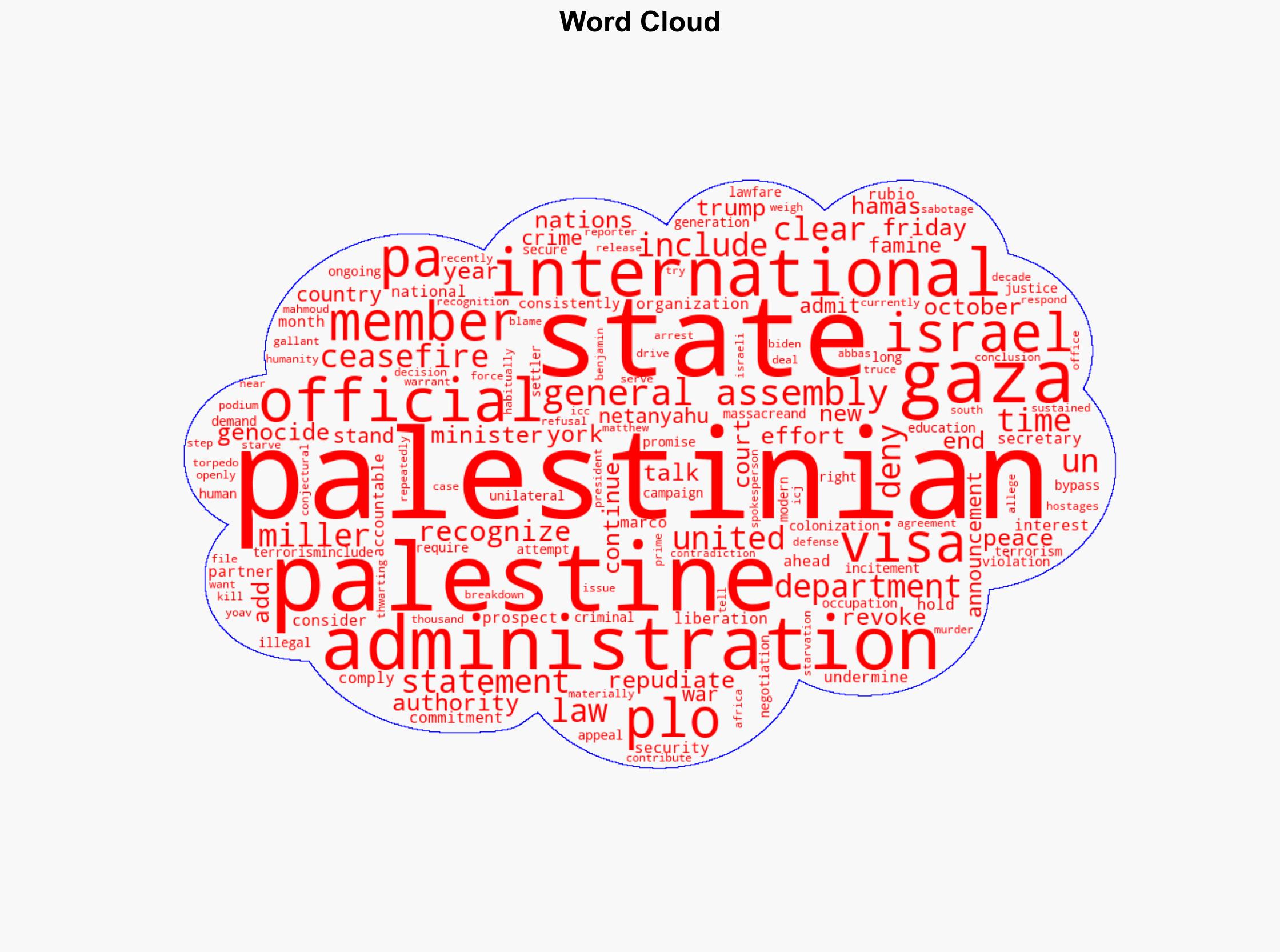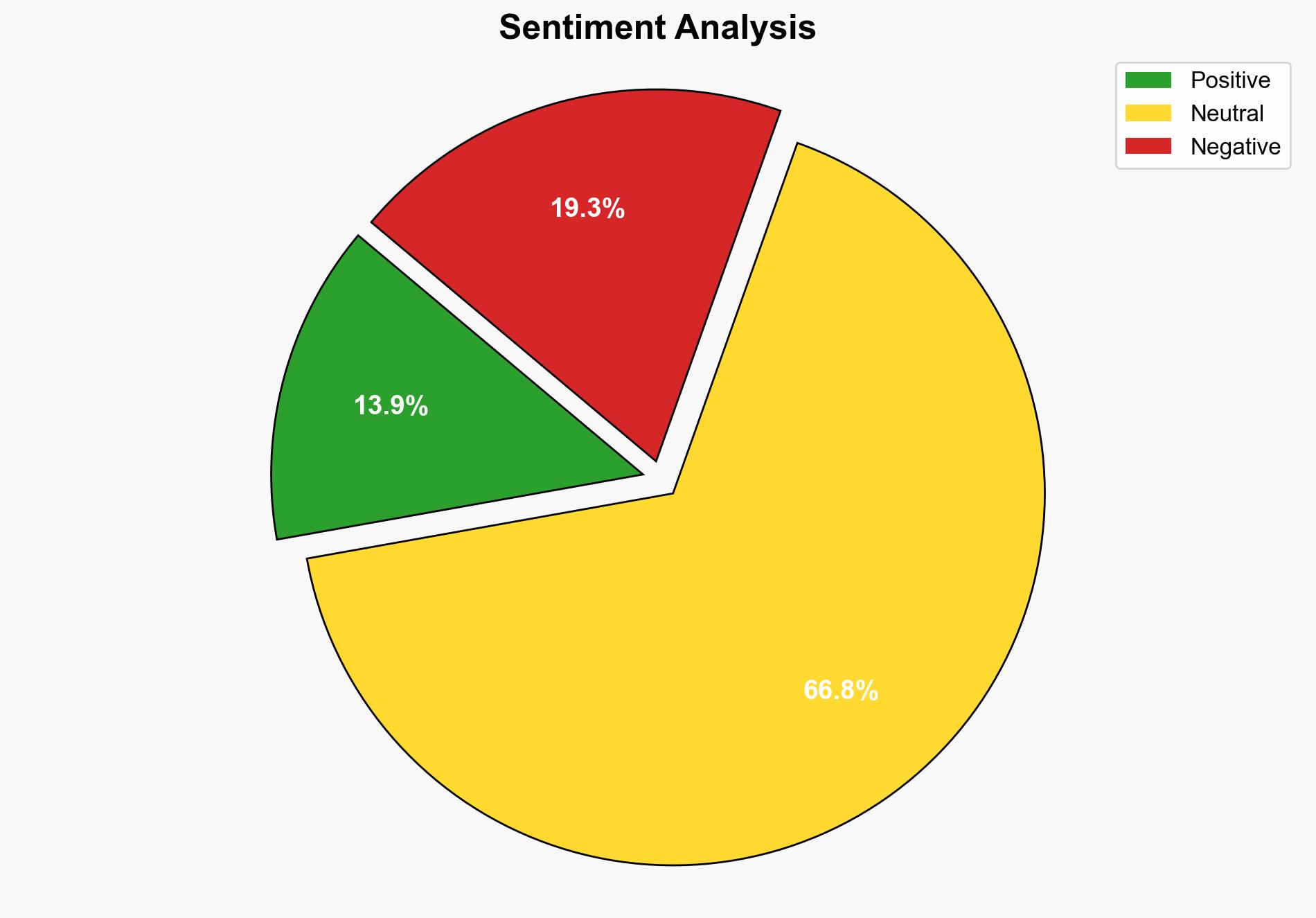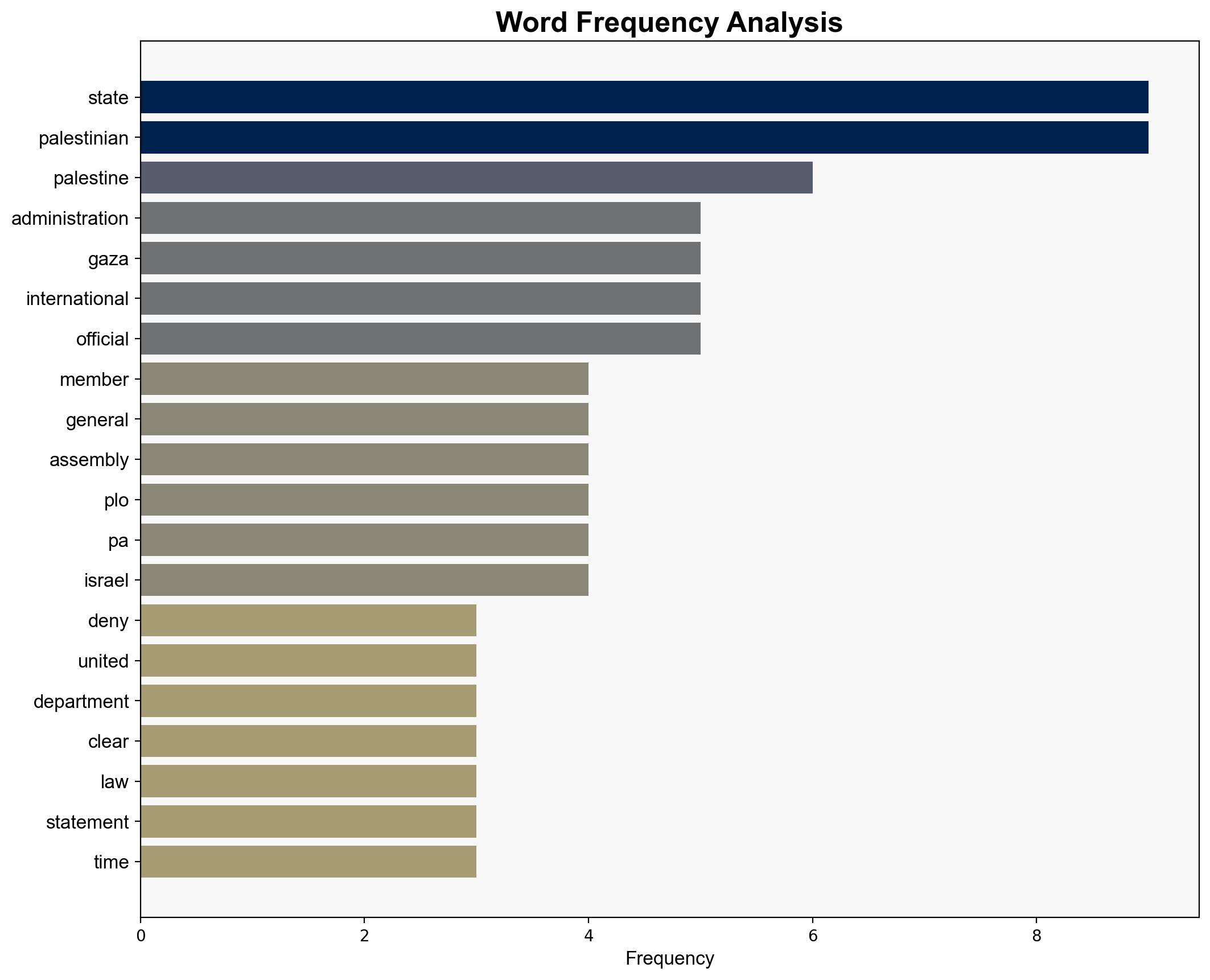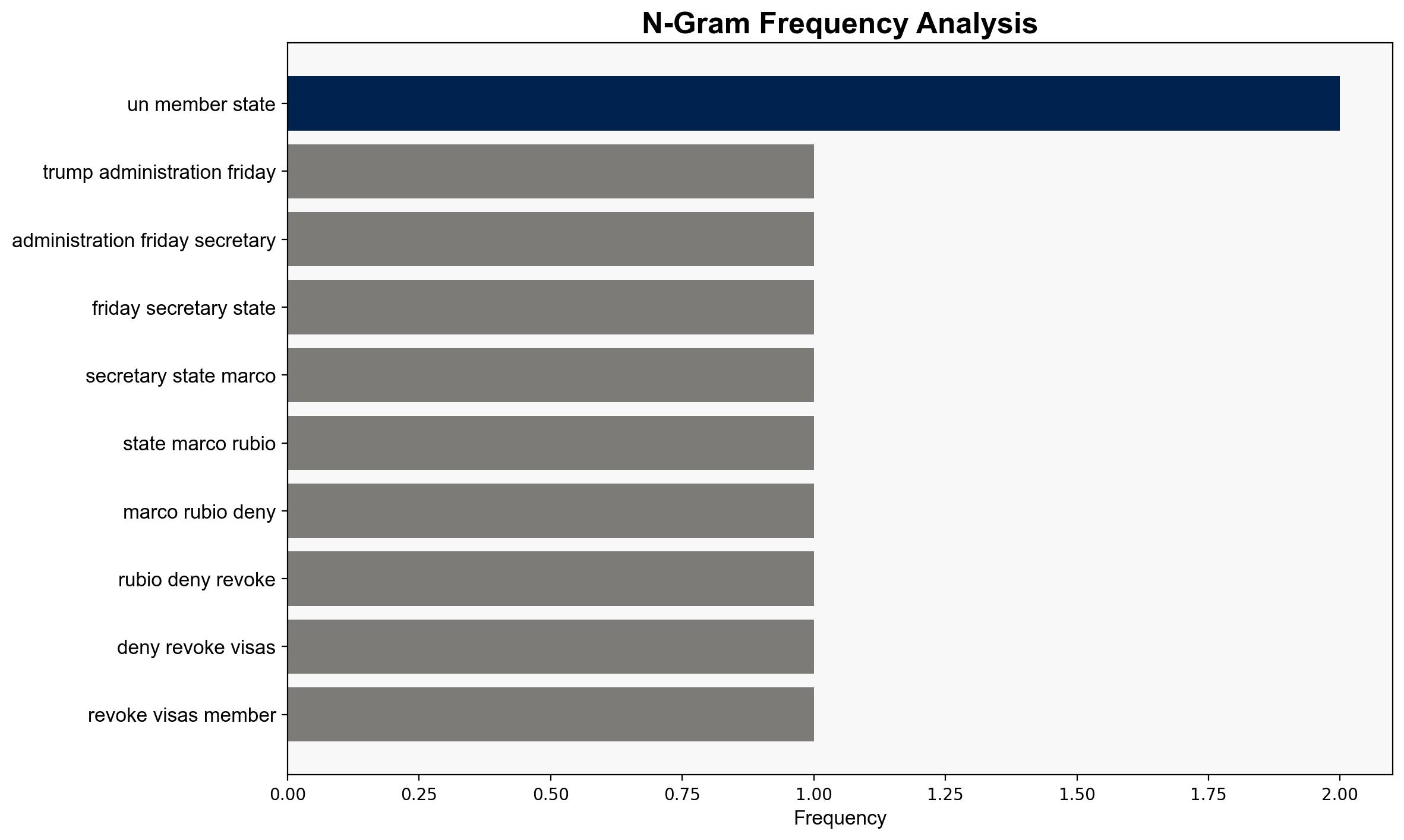Trump admin moves to punish Palestinians by ‘denying and revoking’ visas – Raw Story
Published on: 2025-08-29
Intelligence Report: Trump admin moves to punish Palestinians by ‘denying and revoking’ visas – Raw Story
1. BLUF (Bottom Line Up Front)
The Trump administration’s decision to deny and revoke visas for Palestinian officials appears to be a strategic move to pressure the Palestinian Authority (PA) and Palestine Liberation Organization (PLO) into compliance with U.S. and Israeli demands. The most supported hypothesis suggests this action is primarily a political maneuver to align with Israeli interests and influence Palestinian diplomatic strategies. Confidence in this assessment is moderate due to the complexity of international relations and potential undisclosed motivations. Recommended action includes diplomatic engagement to mitigate tensions and explore alternative conflict resolution pathways.
2. Competing Hypotheses
Hypothesis 1: The visa revocation is a strategic move to pressure the PA and PLO to comply with U.S. and Israeli demands, particularly regarding peace negotiations and anti-terrorism commitments. This aligns with historical U.S. policy to support Israel and leverage diplomatic tools to influence Palestinian actions.
Hypothesis 2: The visa revocation is primarily a domestic political maneuver by the Trump administration to appeal to pro-Israel constituencies and distract from other domestic issues. This hypothesis considers the timing and public statements as indicative of a focus on domestic political gain rather than international strategy.
Using ACH 2.0, Hypothesis 1 is better supported due to the alignment of the action with longstanding U.S. foreign policy objectives and the explicit mention of national security interests. Hypothesis 2 lacks direct evidence linking the decision to domestic political strategy beyond circumstantial timing.
3. Key Assumptions and Red Flags
Assumptions include the belief that visa revocation will effectively pressure the PA and PLO, and that this aligns with broader U.S. strategic interests. A red flag is the potential underestimation of Palestinian diplomatic resilience and international support. The lack of explicit statements from other key international actors introduces uncertainty regarding broader geopolitical impacts.
4. Implications and Strategic Risks
The visa revocation could escalate tensions between the U.S., Israel, and Palestinian entities, potentially disrupting peace negotiations and increasing regional instability. Economic impacts may arise from strained U.S.-Middle East relations, while geopolitical risks include alienating allies who support Palestinian statehood. The decision may also embolden hardline elements within Palestinian territories, complicating counter-terrorism efforts.
5. Recommendations and Outlook
- Engage in diplomatic dialogue with Palestinian and Israeli officials to de-escalate tensions and explore alternative negotiation frameworks.
- Monitor international reactions, particularly from UN member states, to assess shifts in diplomatic alliances.
- Scenario Projections:
- Best Case: Diplomatic engagement leads to renewed peace talks and reduced regional tensions.
- Worst Case: Increased hostilities and breakdown of international support for U.S. Middle East policy.
- Most Likely: Continued diplomatic stalemate with intermittent escalations.
6. Key Individuals and Entities
– Marco Rubio
– Mahmoud Abbas
– Benjamin Netanyahu
– Yoav Gallant
– Matthew Miller
7. Thematic Tags
national security threats, counter-terrorism, regional focus, diplomatic strategy, Middle East policy





